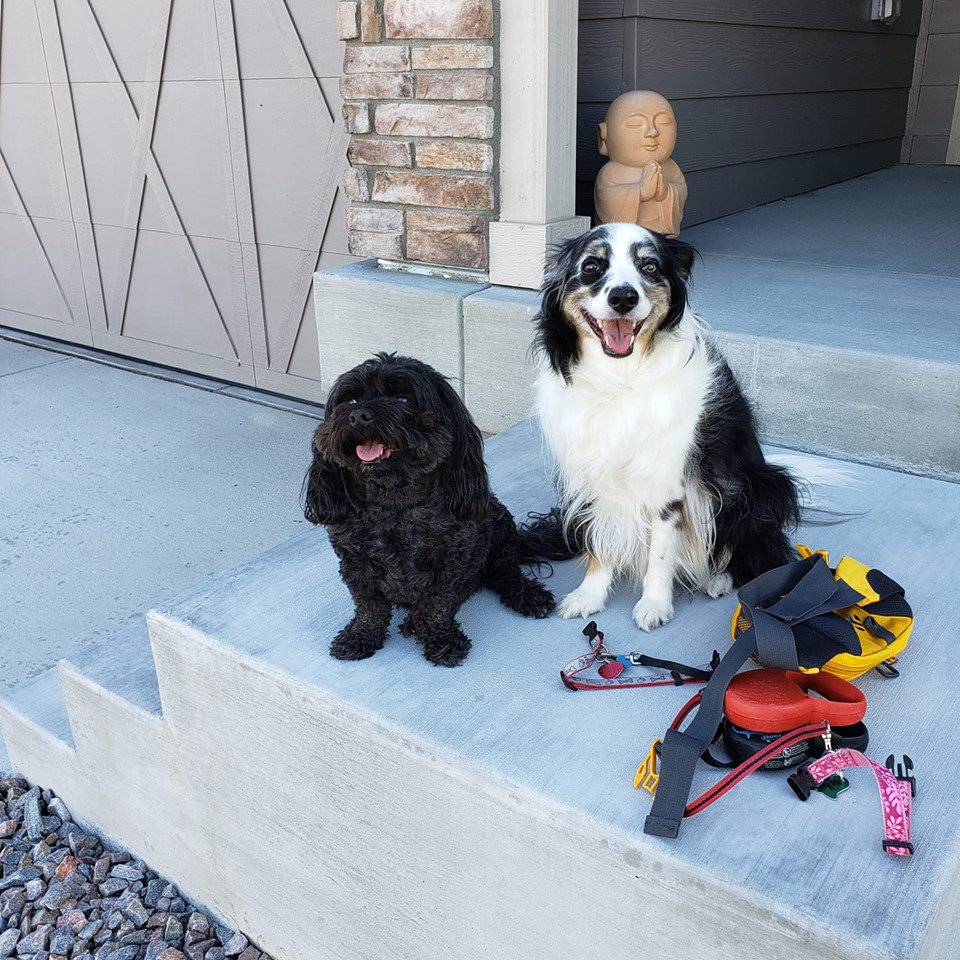If you are unable to remain with your pet, due to hospitalization, natural disaster, or other emergency, HSBV offers free emergency pet boarding and pet care and food supplies to anyone in need.
To talk to a team member about our emergency pet resources, please contact our Behavior & Health team at 303-442-4030 x657.
Here are a few recommendations to help you and your pet stay safe and healthy:
- Food: Keep at least a one-month supply of your pet’s food on hand. Reorder online early if you are running low to prevent poor nutrition or using people food. Same goes for kitty litter!
- Medications: Reach out to your veterinarian prior to finishing your last dose of medications. If you are a client of the HSBV Veterinary Clinic, we recommend using our online ordering portal to keep your pet on their management plan without having to leave the house!
- Supplies: We recommend having a “to-go” bag prepared for your pet. Your pet’s bag should include a leash, collar with ID tags, pet food, a few toys or enrichment tools (like a Kong), a blanket or a bed, any prescription or pertinent medical information, specify the food you use so they can resupply as needed, contact information for your pet’s veterinarian, as well as your pet’s groomer, and boarding facility/doggie daycare, if applicable.
- Caretakers: At this time, it is strongly recommended that pets shelter in place with their guardians. This recommendation is two-fold: Your pet is happiest with you! And, it is best to reduce travel and exposure to other people, whether that is your pet’s caretaker, or HSBV shelter staff. It is crucial that you proactively identify a caretaker for your pet, in the event you are unable to provide for them. We also recommend talking with this caretaker about where your “to-go” bag is located, where to find a larger supply of your pet’s food, and how they can access your home. Should you not be able to shelter with your pet, you will need to communicate with your family, friends, or support system that your caretaker needs to be notified that your pet needs them. Make sure your network knows who your designated pet caretaker is!
- Special considerations:
- If your pet is on medications, we also recommend including a detailed note about dosage in your “to-go” bag, along with refill information. Don’t forget to include your veterinarian’s contact information!
- If your pet has behavioral support needs, we recommend thinking through your daily management and writing a detailed description of what you are working on, what others can expect, and how a caretaker can help your pet feel safe and supported. Questions about how to create a behavior care plan for your pet’s caretakers? Our Training & Behavior team offers consultations and phone assistance, they can be reached at 303-442-4030.

